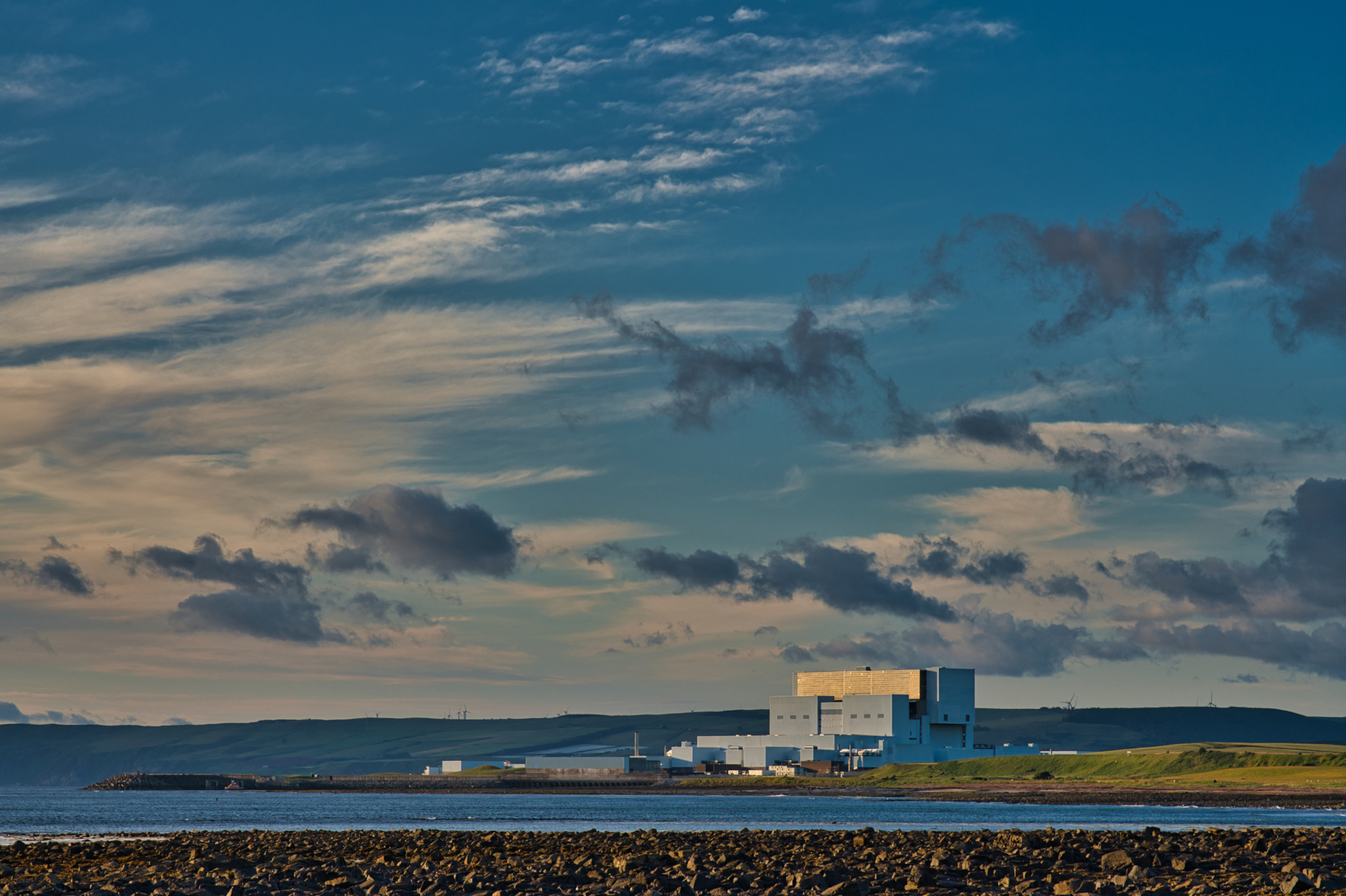Just outside Dunbar, a short drive from Edinburgh, sits Torness nuclear power station. In its 40 or so years of operation, it has produced more than 300 terawatts hours of zero-carbon electricity – enough to power every single home in Scotland for 36 years.
Torness was set to close in three years, but received a two-year stay-of-execution from the nuclear regulator. There are hopes that a further extension is possible, yet most industry experts expect Scotland’s last nuclear power station to close before 2035.
When that eventually happens, Scotland will be without nuclear power for the first time since 1959. And when the wind isn’t blowing and the sun isn’t shining, to keep the lights on Scotland will have a choice: keep burning fossil fuels or import the power from England.
Neither option will sit easily with the SNP who have set Scotland a target of hitting net zero five years earlier than the rest of the UK. Yet they have made this choice inevitable with their illogical ban on building new nuclear power stations.
Politicians often do short-sighted, contradictory and, frankly, stupid things because they are afraid of upsetting their base. What’s so frustrating about the SNP’s nuclear ban is not only do the vast majority of Scots disagree with it, most SNP voters don’t even back it.
An Opinium poll of Scottish voters commissioned by Britain Remade revealed that 52 per cent of voters who backed the SNP at the last Scottish election thought nuclear should be part of Scotland’s net zero energy mix in 2045.
Energy policy isn’t set in Holyrood, but planning policy is. Just as the Conservatives killed onshore wind in England by allowing a single planning objection to sink a project, the SNP are abusing their planning powers to effectively ban nuclear power.
Nationalists defend the ban in two ways: by exaggerating the dangers of nuclear power and exaggerating the benefits of renewables.
Robin McAlpine, an independence campaigner at the ‘Common Weal’ think tank, criticised the poll for, in his words, ‘withholding crucial information’. ‘Look at Fukushima, look at the power stations in Ukraine,’ he cried.
Nationalist MP Bill Kidd took a similar tact. Renewables were safer, he argued, because ‘they don’t leave behind radioactive waste that will be deadly for generations.’
Yet, nuclear stands out for its stellar safety record. In fact, Hannah Ritchie from Our World in Data describes nuclear as ‘one of the safest and cleanest energy sources’ out there. In fact, she found that when you looked at deaths per unit of power generated, nuclear was marginally safer than wind and marginally more dangerous than solar.
That analysis, if anything, underplays nuclear’s safety. Almost all of the deaths she counted against nuclear power were related not to cancer from exposure to radiation, but from the chaotic evacuation in response to the Fukushima meltdown. The stress of leaving care settings to stay in overcrowded gyms for months was much, much deadlier than the radiation (which only killed one person in Japan). Many elderly people may have had a better shot at survival, it turns out, if they had stayed put.
The other argument nationalists use to defend the ban is based on cost. Nuclear, they argue, is too damn expensive. They point to Hinkley Point C – set to be the most expensive nuclear plant in the history of the world – and argue that even if nuclear power was safe, it’s still a waste of money when the cost of adding renewables to the grid has fallen massively in recent years.
There are a number of flaws in their argument. Nuclear plants last longer than wind or solar farms. Even a flawed design like Torness, an advanced gas-cooled reactor, has lasted for twice as long as any wind turbine is expected to. And nuclear’s high costs can be brought down. France builds plants for roughly half the cost of us. South Korea builds them for a sixth of the cost. Let’s learn from them rather than assuming that we will always be the worst in the world.
Nuclear versus renewables is a false choice. We may be able to add wind capacity to the grid quickly and cheaply, but nuclear has advantages too. It works whatever the weather, has a much smaller land footprint, and puts less strain on the grid. Even experts who are bullish on renewables find that a mix of clean energy (including nuclear) is cheaper overall.
But, even if their latter argument was on strong footing, there would still be a fatal flaw. Scotland shares a grid with the rest of Great Britain. Like Germany, Scotland might stop producing nuclear power, but they won’t stop consuming it. They will be importing it when the weather isn’t playing along.
All the SNP’s ban accomplishes is investment and jobs that could go to East Lothian and Ayrshire going to places like Hartlepool and Heysham instead. No wonder the Scottish National Party’s supporters have decided it is not in the Scottish national interest.








Comments